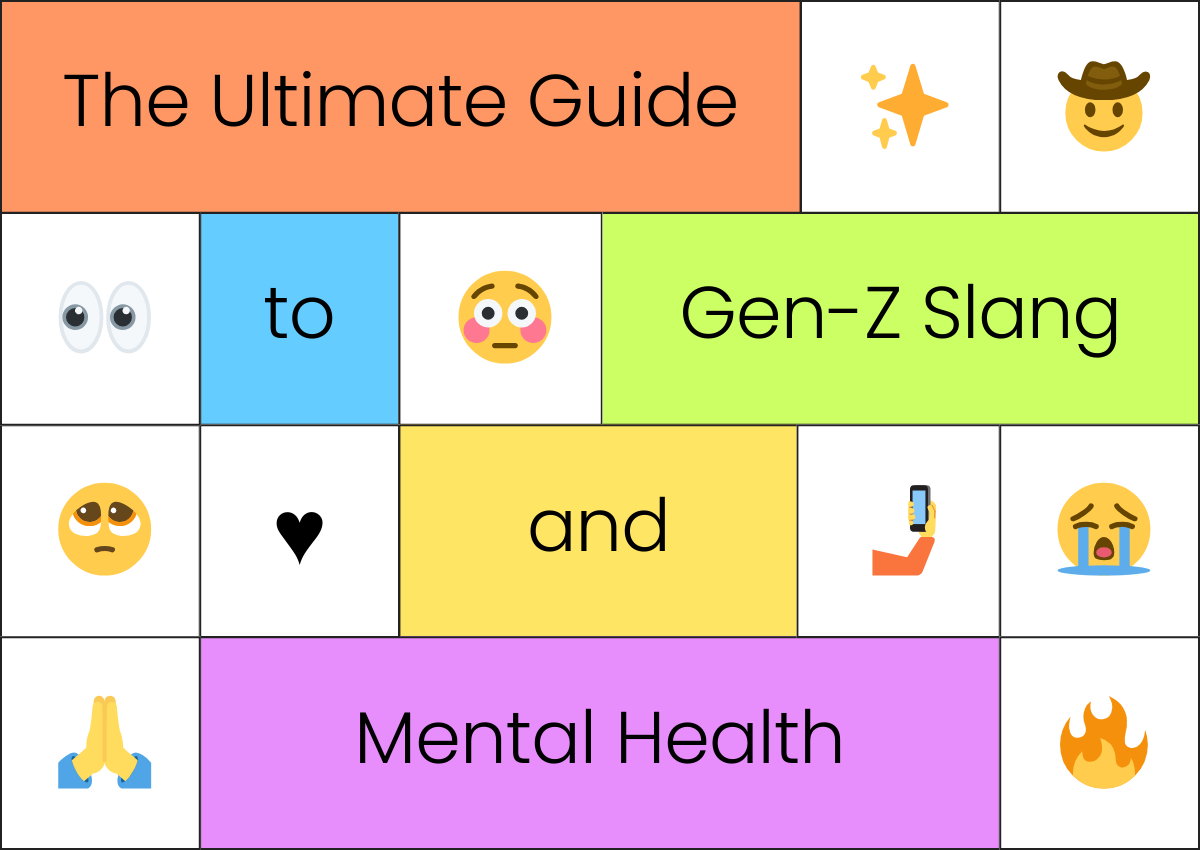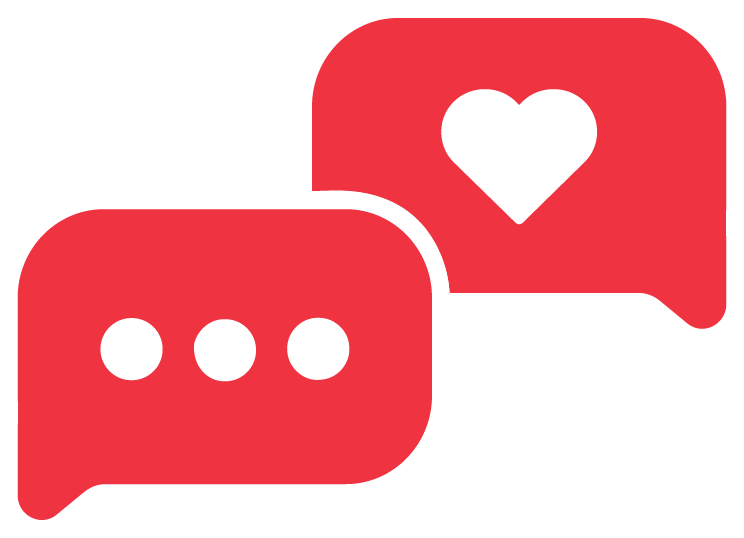The Ultimate Guide to Gen Z Slang and Mental Health

Generation Z is dominating the public sphere. It is no secret that they have a massive influence on culture and language, especially when it comes to mental health topics. If you interact with young people, you’ve probably heard them throwing around words you don’t recognize. While it can all be fun and games, it’s important that parents and educators attempt to understand contemporary lingo to better connect and communicate with adolescents. The children and young adults in your life may be opening up about their mental health in ways that you don’t understand.
We’ve compiled a list of popular slang used by Gen Z. Our hopes are that this list can help you understand the young people in your life and can provide insights into when it might be appropriate to check in on their well-being.
Youth Language and The Importance of Understanding It
Language is powerful. It can serve as a gateway to understanding societal values and cultural experiences of a particular generation or age group. We see this a lot today with Gen Z’s openness about mental health, and how they communicate about anxiety, depression and self-care. The words they use can seem silly, but it often expresses ideas about inclusivity, mental health or the digital-first world in ways that may seem unfamiliar to older generations. When we try to meet them where they are, we can further bridge gaps and inspire meaningful conversations!
We’ve compiled a non-exhaustive list of popular Gen Z words. The terms listed below reflect those used across TikTok, the leading platform for Gen Z users under 27.
The A-Z of Gen Z Mental Health Slang
A to G
- A: Ate and left no crumbs, AF, aura (points)
- B: BDE, Beige Flag, Bussin, Brainrot
- C: Caught in 4K, Cap, Cheugy, Cringe,
- D: Delulu, Dead
- E: Era
- F: Fam
- G: Gaslighting, Ghost, Gyat
H to M
- H: Hustle culture, High key
- I: It’s giving
- J: Jit
- K: Karen
- L: Living rent free, Lit
- M: Main character, Mid
N to T
- N: Neurodivergent, NPC
- O: Opps
- P: Pookie, Pluh
- Q: Queen
- R: Rent Free, Rizz, Real, Red Flag
- S: Sleep On, Simp, Sus, Skibidi, Sigma, sksksk
- T: Triggered, Touch Grass, Tweaking
U to Z
- U: Unplugging, Understood the assignment, Uwu
- V: Vibe check
- W: W, womp womp
- X: XXX
- Y: Yap, Yeet
- Z: Zoning Out
Emojis
How to Foster Open Communication
So, you’re familiar with the terminologies, but how do you open up healthy, high quality communication? Having an open conversation about mental health can be difficult to navigate. Here are some tips on how to create a safe space for starting a dialogue:
- Validating feelings without judgement. Safe spaces allow for people to share their raw feelings without fear of shame.
- Actively listening. Your goal should be to understand, not to respond.
- Avoiding interruptions. Focus on listening in order to prevent misunderstandings and cutting someone off in the middle of their thoughts.
The Role of Social Media in Shaping Gen Z Language
Gen Z is considered the “digital-first” generation, meaning that a good percentage of their generation grew up with devices and internet access at the ready. They had access to an abundance of information all at once unlike any generation before them, which leads to no surprise that they dominate internet culture and social media. Because they’ve grown up with social media, it is only natural that they cling to platforms such as TikTok, Instagram, and X to create their communities and come up with the lingo that they use.
Even though social media has furthered mental health awareness in many remarkable ways, some research suggests that social media use may be contributing to or causing declines in mental health, while other studies have found that this may not be the case. While there is no for-sure solution, it is safe to say that advising the young people in your life to keep an eye on their screen-time is probably a good idea, even if it’s just attempting to reduce it by a few hours a week. A little bit can go a long way!
–
It’s important to understand Gen Z slang words as we work to build a society that supports adolescents’ mental health. When we’re more informed about the language our youth consume, it brings us one step closer to understanding their mental health and building strong, intentional relationships. If you know someone who could use a brush-up on Gen Z lingo, share this blog post with them or consider following Crisis Text Line on Instagram and Tiktok for updates on youth culture and mental health.
Text CONNECT to 741741 at any time for free, confidential mental health support. Free, 24/7.

